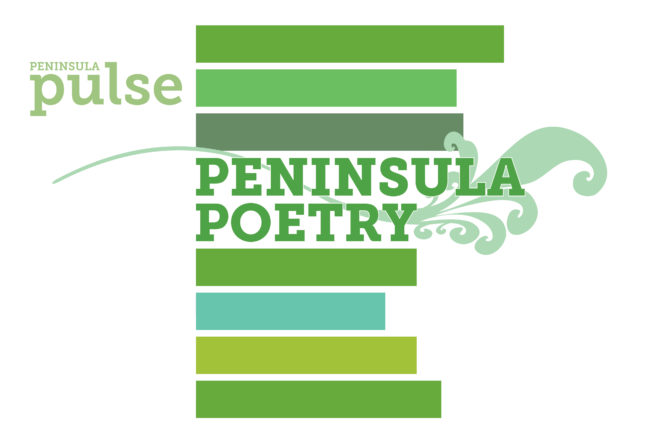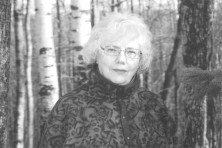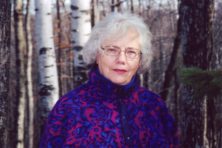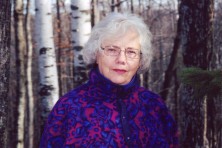Peninsula Poetry: Estella Lauter
- Share
- Tweet
- Pin
- Share

Estella Lauter joined the community of poets almost 20 years ago when she retired from the UW System and moved to Door County with her husband. She had written poems since the 1970s and had been a member of a writing group in Appleton and another at UW-Oshkosh, both of which had prepared her for the Wallace Group, Word Women and Belles Lettres here.

Lauter has published four chapbooks with Finishing Line Press since 2006, and her poetry has appeared in several anthologies and journals. Her poems have earned awards from the Wisconsin Academy, the Wisconsin Fellowship of Poets and the Wisconsin Writers Association, as well as multiple Hal Prize honors from the Peninsula Pulse. She served as Door County’s third poet laureate in 2013-15 and founded the Door County Poets Collective to publish two anthologies of poems about the county: Soundings in 2015 and Halfway to the North Pole in 2020.
What’s your writing routine?
As I go through each day, I notice details of the world around me and keep them in the back of my mind until they well up into a poem that must be written. In February, I participated in a program that required a new or revised piece each day, and I found that several poems were already waiting for me to write them.
What do most poorly written poems have in common?
They either require too little or too much of the reader. The first kind is too obvious; the second asks the reader to follow the writer too far into an esoteric experience without providing enough breadcrumbs to mark a path.
What do most well-written poems have in common?
They engage almost any reader who pays attention to both the form and content, and they allow the reader to take part in the poem, even if the poet’s experience was previously unfamiliar.
Is it important to understand the meaning of the poem or for the reader to be able to “solve” it?
I think some level of understanding is necessary to enjoyment, but I don’t think a poem is a problem to be solved with an airtight interpretation. A reader should be able to establish a relationship with the poet, however fleeting it may be.
What book are you reading right now?
I am reading the latest books by Donna Leon, Elizabeth George and Jacqueline Winspear because I like their characters and worldviews and because the mystery genre treats profound issues even as it assures us that problems can be solved. I am also working my way through Salman Rushdie’s Languages of Truth.
Peninsula Poetry is a monthly column curated by the Door County Poets Collective, a 12-member working group that was formed to publish Soundings: Door County in Poetry in 2015 and continues to meet.
The Wild Turkey
Having been absent for several decades,
the wild turkey has returned to Wisconsin.
Have you noticed
his tarnished-bronze wings
and copper tail
unlikely scarf and pink cap
on a head that bobs relentlessly?
What about the stiff black beard
that flops in time with a restless gait
of long legs on three-pointed feet?
The bird books say he may gobble
yelp, cackle, rattle, hiss or coo
but I hear nothing except when
he pecks for seed on our deck
or spreads his wings and flies
heavily to a nest in nearby trees.
Such a nervous bird, as if he knows
his parts do not cohere and wants
to blur them, jerking by us
like a home movie
caught between frames of fowl
and some much older form of being.
Generations Tonight we introduced the grandsons to Casablanca, the film my husband plays whenever the Right goes too far and he needs to know that the Allies will win. It’s only fair. We watch their faves: Spider Man three times to compare the actors and plots. The guys thought it was good but heavy didn’t really get the politics except when French patrons at Rick’s drowned out the German soldiers with The Marseillaise. And the story of marriage for a cause that later results in loss of greater love was beyond the pale. They listened but their eyes were trained on little screens so they missed the body language the full range of emotion. Over time, if it is granted, we will return to this film and its war, its cause the ethics and the moral center. The boys are young, preoccupied with heroes who are superpowered technicolored, programmed to win. Trials of mere mortals are boring. But it is hard tonight not to remember a friend who taught the history of World War II in the late-Sixties and wept, even then, at the distance his students felt from the monumental test it posed.



